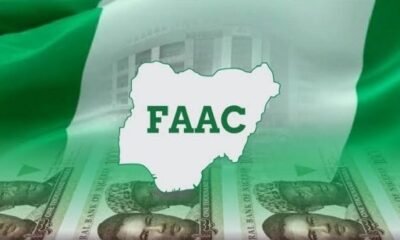Education
ASUU gives FG 21-day strike notice
The Academic Staff Union of Universities has informed the Federal Government of its plans to embark on a nationwide strike by placing the government on a 21-day notice, The PUNCH reports.
Sources within the National Executive Council of ASUU confirmed the development to newsmen in Abuja on Monday.
The notice was issued at the end of the NEC meeting, which was held at the University of Ibadan, and a copy is expected to be transmitted to the Federal Ministries of Labour and Education.
“It is not an ultimatum but a strike notice. We are giving them 21 days’ notice, after which we shall embark on strike.
“Our aim for putting out the notice is that it is a requirement under labour laws so we are trying to ensure that all our actions are done according to the law,” the source said.
It would be recalled that ASUU had threatened to embark on strike over the non-implementation of agreements reached with the federal government.
On June 26, the Minister of Education, Prof. Tahir Mamman, invited the union to a meeting to deliberate on the lingering issues affecting universities and to avert the planned strike.
The national president of ASUU, Prof. Emmanuel Osodeke who spoke on the outcome of the meeting said the agreements reached with the Federal Government had not been implemented.
“At the meeting called by the Minister of Education, we agreed that after two weeks, we will meet to see the progress the government has made.
“We will also see what we will do next if the government fail to implement the agreements reached.”
The ASUU president said some of the demands included the non-implementation of the 2009 re-negotiated agreements.
He said the agreements had lingered for over six years, and the government had yet to implement them.
Osodeke said the academic allowances due to their members had also accumulated for over six years, and nothing had been done about it.
On the issue of the revitalisation fund, he said they agreed on the Needs Assessment Report to raise N200 billion yearly for five years.
“Since 2013, only one has been paid. We need revitalisation funds to upgrade our universities to standard so that we can have students and lecturers from outside the country,” he said.
Oshodeke added that the government had yet to stop the proliferation of universities, adding that many new universities were being approved without funds to run them.





















